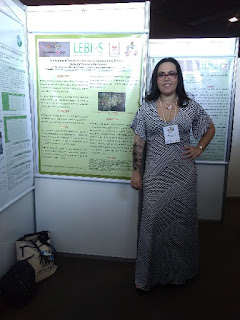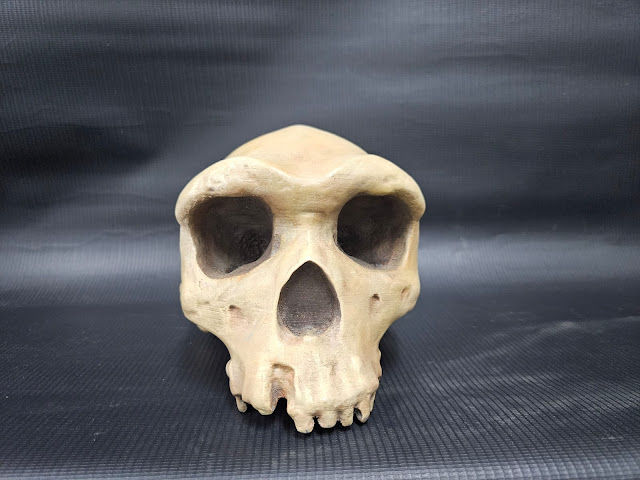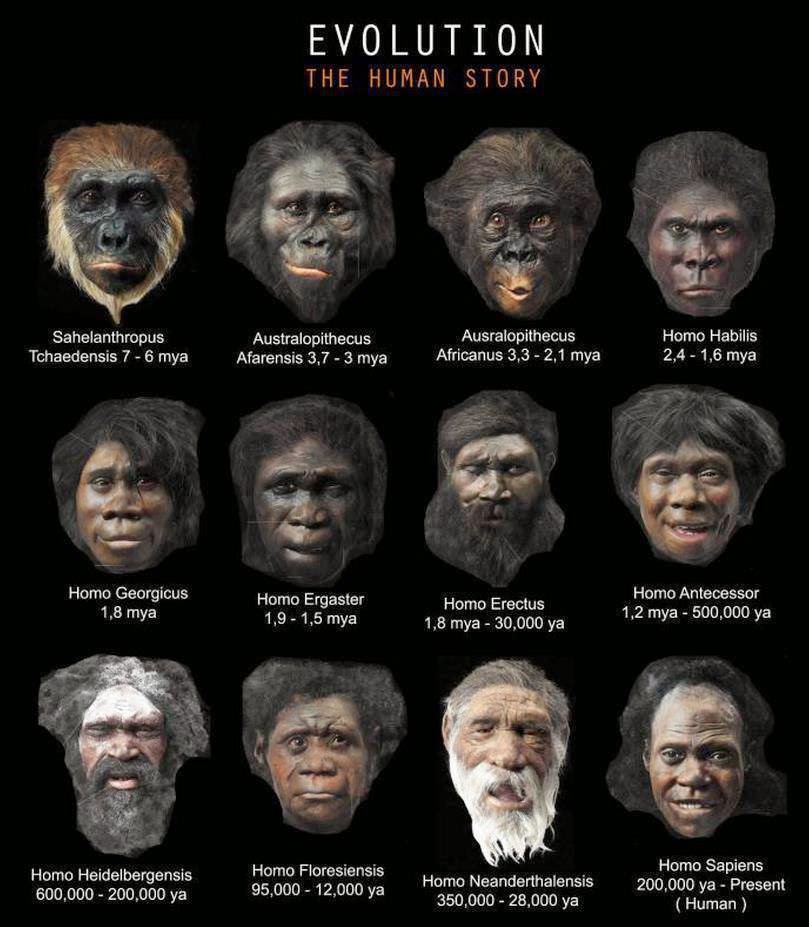INTEGRANTES DO LEBIOS PARTICIPAM DO HISTÓRICO BELÉM + 30
Entre os dias 07 e 10 de agosto de 2018,
aconteceu no Hangar Centro de Convenções, em Belém do Pará, Brasil, o XVI
Congresso da Sociedade Internacional de Etnobiologia, juntamente com o XII
Simpósio Brasileiro de Etnobiologia e Etnoecologia, a I Feira Mundial da
Sociobiodiversidade e a IX Feira Estadual de Ciência, Tecnologia e Inovação;
com o tema: Os direitos dos povos indígenas e populações tradicionais e o uso
sustentável da biodiversidade três décadas após a Declaração de Belém; mais
conhecido como Belém + 30.
Segundo a organização: “O evento é organizado pela Universidade
Federal do Pará e o Museu Paraense Emílio Goeldi, em colaboração com a
Sociedade Internacional de Etnobiologia (ISE) e a Sociedade Brasileira de
Etnobiologia e Etnoecologia (SBEE).
O
primeiro Congresso Internacional de Etnobiologia, organizado pelo Museu Goeldi,
foi realizado em Belém em 1988. O evento culminou na Declaração de Belém,
documento pioneiro que destacou a conexão entre os povos tradicionais e a
biodiversidade, reivindicando seus direitos sobre territórios, recursos
naturais e conhecimentos ancestrais.
O
evento tem como tema central "Belém +30. Os direitos dos povos indígenas e
populações tradicionais e a conservação da biodiversidade três décadas após a
Declaração de Belém.” O objetivo deste congresso é refletir sobre a Declaração
de Belém e o campo da Etnobiologia ao longo dos últimos trinta anos, focando
nos avanços e desafios científicos, éticos, jurídicos e políticos relacionados
aos povos indígenas e populações tradicionais e o uso sustentável da
biodiversidade”.
Neste Congresso, participantes do LEBIOS
tiveram vários trabalhos aprovados e apresentados.
No dia 08, no horário de 12:30 às 14:30, a Doutora
Ariana Kelly L. S da Silva, egressa do Programa de Pós-Graduação em
Antropologia (PPGA/UFPA); a Mestre Roseane B. Tavares, egressa do Programa de
Pós-Graduação em Saúde, Ambiente e Sociedade na Amazônia (PPGSAS/UFPA) e a
discente Giovanna Piani, do Curso de Ciências Sociais, também da UFPA,
expuseram seus trabalhos apresentados na forma de pôster. Abaixo, os resumos.
Resumo
Implications of Traditional Knowledge as Complementary Therapy for Sickle Cell Anemia in the Amazon
Silva, AK; Tavares, RB; Filgueiras, L; Silva, HP.
Sickle Cell Anemia (SCA) is the most prevalent hemoglobinopathy in the world, and because it is a genetic disease difficult to manage and has severe clinical sequelae, it is essential that the control be done properly. This study analyzed the traditional knowledge of people with SCA in the State of Pará, Brazil as complementary therapy to the disease, in order to identify their therapeutic itineraries in addition to the allopathic treatment. We conducted semi-structured interviews at the regional Hemocenter with 60 patients, from 11 to 46 years old, for socioeconomic information, signs and clinical symptoms and complementary treatment to SCA. The results show people with SCA generally follow the allopathic standards established by the multidisciplinary team of Hemocenter, however, there are common reports about the use of teas for various symptoms, such as anemia, joint pains, nausea, headache, liver or stomach problems, which are common in the disease. The interviewees also described the use of balsams, bitter baths, vitamin C mixes (beet with lemon and honey), bottles with quinarana, picão, rosemary and other plants, made at home or ordered, and the search for spiritual healing. Some people reported adverse reactions after ingestion of these products and discontinued use. In the popular imagination, the disease remains obscure and the name "Anemia" generates diverse interpretations. We concluded the traditional knowledge culturally exercised by people with SCA can alleviate some symptoms in certain cases but in others, the consequences can be serious, since they already coexist with excess of iron in the organism due to blood transfusions that are part of the therapy, and taking traditional pharmacopoeia products can cause nausea, discomfort and potential worsening of the disease. The adequate follow-up by the hemocenter team, with information exchanges about the proper use of traditional products or recommendation of disuse is the most suitable one.
 |
Ariana Silva apresentando seu pôster em exposição no
congresso.
Resumo
The Rescue of Traditional Knowledge in an Indigenous
Village through the More Doctors Program
Tavares,
RB. Filgueiras, LA. Silva, AK. Silva, HP.
One of the
aims of the More Doctors Program (MDP) is the emergency provision of doctors to
work in Primary Care in areas of difficult access. Many professionals came
though a cooperation agreement between Brazil and the Pan American Health
Organization/World Health Organization (PAHO/WHO). Thousands of Cuban doctors
came to work in the program. Among the priority areas they were allocated to
the indigenous territories. The objective of this study was to analyze the
experience of recovery of traditional knowledge about the use of medicinal
plants by a Cuban doctor working with the Kumenê Indigenous Population, in
Oiapoque, Amapá State. The methodology included the analysis of a video
produced by PAHO/WHO with the physician and bibliographical analysis about the
MDP. With the arrival of the Cuban doctor, specialist in Family/Community
Medicine, and post-graduated in Traditional Medicine, the rescue work began
through exchanges about the relevance of the use of plants between the doctor
and the group. The doctor sought the knowledge of the elders of the village,
and supported by the chief, with the participation of the community planted the
medicinal herbs that were already recognized/cataloged in old canoes at the
center of the village. The unknown ones were taken to the Institute of
Scientific and Technological Research of Amapá (IEPA) to be analyzed and
afterwards returned. The medicine practiced in Cuba unites traditional and
biomedical knowledge in a joint effort to improve health. Cuban doctors have a
holistic view of the health-disease process, strengthening the links between
them and the patients, cooperating for a more inclusive medical system. In
Brazil, it is necessary to recognize more the importance of traditional
medicine and change the academic view in the health area in relation to
interculturality, starting with the effective insertion of integrative
practices in the Brazilian Unified Health System, in accordance to what is
stated in the legislation.
Roseane Bittencourt, apresentando
seu trabalho no congresso.
Resumo
Saberes, Práticas e Significados sobre a Menstruação em Uma Família
da Ilha do Combú - Pará
Godinho, GSP; Silva, HP.
Esta pesquisa consiste em um estudo
etnográfico sobre as práticas vivenciadas durante o período menstrual e o
simbolismo que esse momento adquire na vida de mulheres na Amazônia insular. O
estudo enfoca duas gerações, mãe e filha, residentes da Ilha do Combú, situada
na região metropolitana da capital do Pará, Belém. Apesar da proximidade com o
centro urbano, a ilha apresenta fortes diferenças quanto à organização
socioeconômica e a preservação dos saberes tradicionais, que se reflete em
diversos âmbitos da vida dos moradores, que se consideram
"ribeirinhos". O problema da pesquisa consiste em perceber as
particularidades e individualidades da relação dessas mulheres com a própria
menstruação, ao mesmo tempo em que procura compreender como a reconfiguração
familiar entre as gerações transmite os saberes e significados sobre este
evento biocultural mensal. Os métodos utilizados são a conversa informal
anotada, após cada visita, em diário de campo e entrevistas semiestruturadas
sobre eixos temáticos vistos como essenciais para a compreensão dos fenômenos
investigados. A importância desse trabalho no campo do Etnoconhecimento é
evidenciar, através do olhar antropológico, os aspectos sociais e culturais
ligados à menstruação entre as gerações de mulheres ribeirinhas, enriquecendo a
compreensão do fenômeno de base biológica com a incorporação dos diversos
aspectos socioculturais que lhe dão significado, e como esse fenômeno é
permeado pelas conexões entre os saberes técnico/moderno e tradicional em
saúde.
Discente
do Curso de Ciências Sociais da UFPA apresentando seu trabalho no ISE 2018.
Membros do LEBIOS
participando do ISE 2018
Exposição
dos posters no ISE 2018.
Ainda no dia 08, no período da tarde,
foi divulgado na Sessão 2 do Festival de Filmes, que tinha como moderador Adriano
Gambarini, onde foi exibido o filme de Ariana Silva, intitulado A Doença Falciforme na Amazônia: As
Intersecções entre Identidade de Cor e Ancestralidade Genômica no Contexto
Paraense, fruto de sua tese de doutorado (Disponível em: https://www.youtube.com/watch?v=-HMgFwJi7P4).
Programação
do Festival de Filmes do ISE 2018
Ariana
Silva falando sobre seu filme selecionado no Festival.
Discussão
final sobre os filmes do Festival
No
dia 09 foi a vez do coordenador do LEBIOS, Prof. Dr. Hilton P. Silva, que
coordenou a Sessão Temática 044, intitulada Internacional
Workshop Origins, Adaptations and Biological Diversity of Amazonian Native Peoples
+ 30.
Resumo
Origins, Adaptations and
Biological Diversity of Amazonian Native Peoples: Celebrating + 30
Hilton P. Silva
In 1988, Dr.
Walter Neves, then coordinating the Human Biology Program (HBP) of the Museu
Paraense Emílio Goeldi (MPEG), organized the International Workshop Origins, Adaptations
and Biological Diversity of Amazonian Native Peoples which brought to Belém a
group of experts to present their perspectives on the current knowledge and the
need for future research related to the human biology, human ecology and
biological anthropology of Amazonian populations. These were among the first
scholars to conduct modern anthropological investigations to analyze a wide
range of socioecologic and biologic changes taking place in the region through
an interdisciplinary approach. Many of the talks at the Workshop, which
happened in May, anticipated themes of those presented at the First
International Congress of Ethnobiology, held in July, and called attention to
the urgent need for furthering research in the fields of archaeology, bioanthropology,
etnohistory, ethnobiology, epidemiology and a diverse array of areas converging
to the comprehension of the long term processes taking place in Amazonia.
Participants of the Workshop included some of the most important
archaeologists, geneticists, ecologists, and human biologists of the time.
Their papers presented questions and proposed ways for the development of
future programs of research in the Amazon for the next decades. This paper
discusses the works presented and evaluate the current state of the art of
research in those fields, aiming to create new perspectives about studies of
the relationship between communities and their environment, and the planning of
more adequate public policies for the Amazon.
Já
no dia 10, último dia do evento, foi a vez de Lígia Amaral Filgueiras, também egressa
do PPGA/UFPA, que apresentou seu trabalho na forma oral na Sessão Temática 049.
Resumo
Food Insecurity in Quilombola Communities in the State
of Pará, Brazil
Filgueiras,
LA; Silva, HP; Ramos, EMLS; Silva, AKLS; Tavares, RB.
The Brazilian
Quilombola population has been suffering various forms of violence and
oppression throughout its history, from slavery to the present day. This situation
strengthens their social vulnerability, encompassing the environment in which
they live, living conditions, food security, economic forms of survival, and
these factors ultimately determine their health in every way, especially
children. We analyzed 495 children (247 boys, 248 girls) aged 0 to 9 years old
from six Quilombola communities in the State of Pará in relation to the
parameters of child growth of the World Health Organization and their social
determinants of health (Africa/Laranjituba, in Abaetetuba municipality, Santo
Antônio, in Concórdia do Pará, Mangueiras, in Salvaterra, Mola, in Cametá,
Oriximiná, and Abacatal, in the metropolitan region of Belém-PA). 35.72% of the
children in Mola present z score - 2 nutritional deficit, but the nutritional
transition and food insecurity are already present with cases of overweight and
obesity in many others. Access to health is still difficult due to the
distances between homes and health centers, since most of the time the
transport is made by small motor boats. In general, the social determinants of
health continue to influence the lives of these populations because all of them
lack environmental sanitation, piped water, there is no internal bathroom,
which influences to high levels of intestinal parasitism, skin infections, and
other diseases. We agree that the Amazon region is vast and difficult to
manage, but if there are no serious improvements and implementation of public
policies directed to the Quilombolas, in all sectors, children will still be
forced to be far from the parameters of international growth in the 21st
century. Therefore, it is their right to have access to public health and food
security programs to become healthier and more productive adults.
Lígia
Filgueiras apresentando seu trabalho no ISE 2018.
O Belém+30, que foi presidido pelo Prof.
Dr. Flávio Barros, também do docente do núcleo de Bioantropologia do PPGA, trouxe
a Belém cerca de 2000 participantes, de dezenas de países e etnias, incluindo um
grande número de populações Amazônidas, que puderam participar gratuitamente do
evento, realizando-se como um momento de grande pluralidade cultural e acadêmica, que permitiu o encontro de
profissionais e grupos de diversas áreas e regiões geográficas, o conhecimento
de novas pessoas e temas relacionados a Etnobiologia, bem como à Biodiversidade,
à Sociodiversidade e à Bioantropologia, e já entrou para a história através do
número recorde de participantes, da criação da Feira Mundial da
Sociobiodiversidade e da nova Declaração de Belém.
|
Membros
do LEBIOS junto a participantes da comunidade Negra durante o Belém+30.
Para saber mais acesse:
https://www.ise2018belem.com/
e
https://www.portal.ufpa.br/index.php/ultimas-noticias2/8784-paises-debatem-direitos-dos-povos-indigenas-e-das-populacoes-tradicionais-e-uso-sustentavel-da-biodiversidade.




















Comentários
Postar um comentário